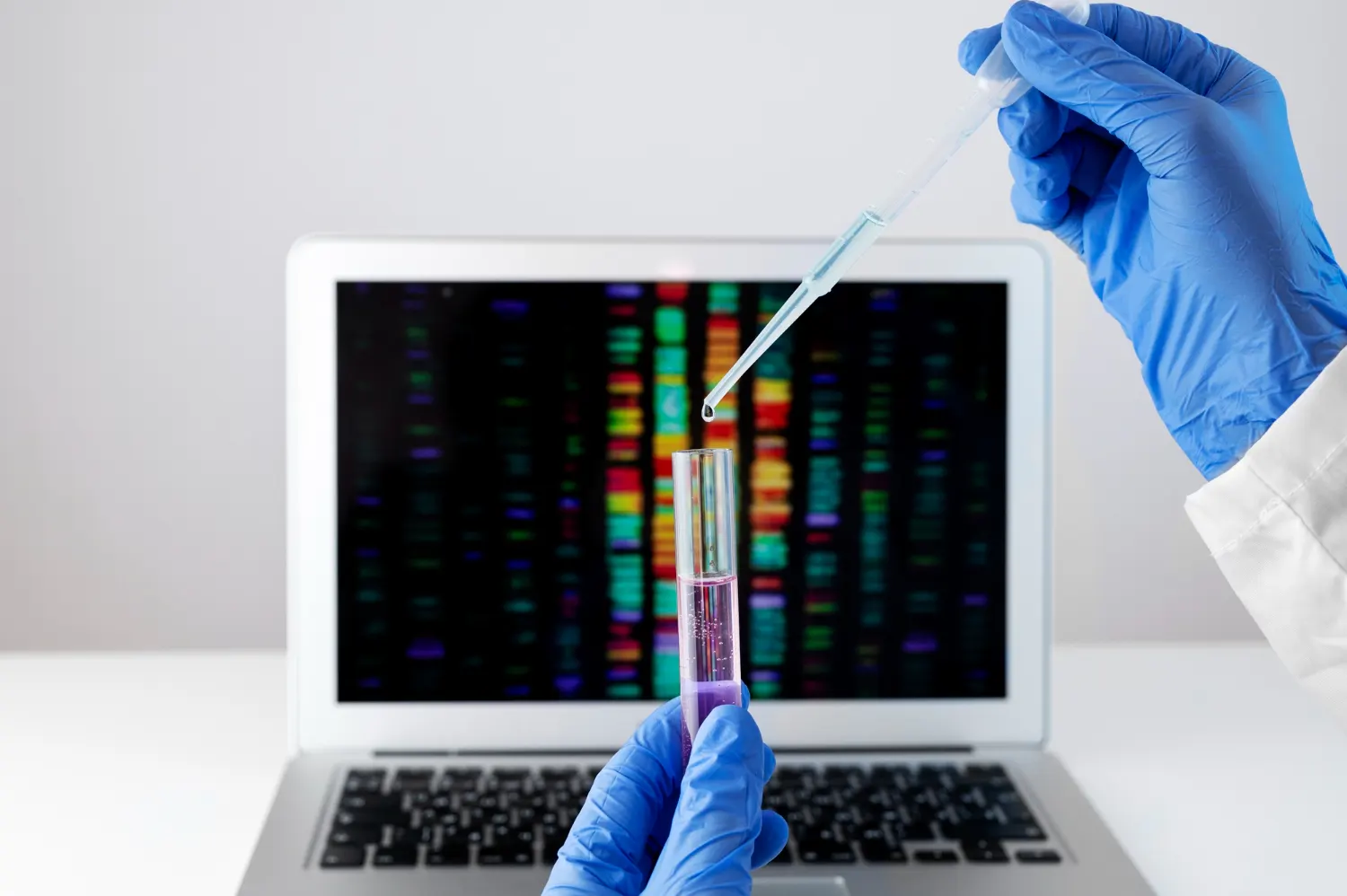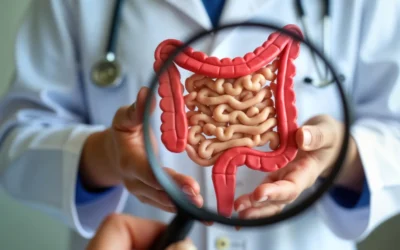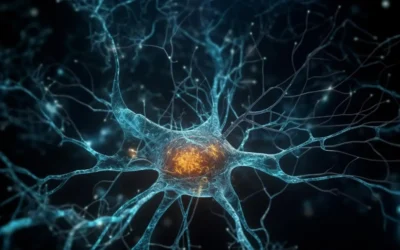The surge in genetic testing has transformed the landscape of cancer risk assessment, particularly in breast and ovarian cancers. At the heart of this transformation lies the BRCA gene test, a powerful tool that can reveal inherited mutations in BRCA1 and BRCA2—genes critical to DNA repair mechanisms. Mutations in these genes significantly elevate the lifetime risk of developing certain cancers. But while the testing itself is straightforward, the results are anything but.
Interpreting BRCA test outcomes requires a nuanced understanding. A positive result does not mean a cancer diagnosis is inevitable, and a negative result does not guarantee immunity. More challenging still are “Variants of Uncertain Significance” (VUS), which can leave individuals caught in a whirlwind of medical ambiguity.
This article provides an in-depth, evidence-based guide to BRCA test interpretation. We’ll walk through what each result type really means, the clinical and emotional implications, and recent breakthroughs—such as advances in variant classification—that are helping to clarify uncertainty. By the end, you’ll be equipped with the knowledge needed to navigate BRCA testing confidently and responsibly.
In This Article
What Is the BRCA Gene Test?
BRCA gene testing is a form of genetic testing used to identify inherited mutations in two specific tumor suppressor genes: BRCA1 and BRCA2. These genes normally help repair damaged DNA. When they are mutated, the DNA repair function is impaired, allowing cells to grow uncontrollably and potentially form cancers—most commonly breast and ovarian cancers, but also pancreatic, prostate, and others.
Who Should Consider BRCA Testing?
While BRCA testing is not necessary for everyone, it is strongly considered for those with:
- A personal or family history of breast or ovarian cancer, especially at a young age
- Ashkenazi Jewish ancestry, where BRCA mutations are more prevalent
- A known BRCA mutation in the family
Healthcare providers typically recommend genetic counseling both before and after the test to help patients interpret the results and plan next steps accordingly.
The BRCA Testing Process
The BRCA test itself involves a simple blood draw or saliva sample. The sample is sent to a genetic laboratory, where sophisticated molecular techniques are used to sequence the BRCA1 and BRCA2 genes and detect any pathogenic variants.
How Long Do Results Take?
Turnaround time can vary from 1 to 3 weeks, depending on the laboratory and the scope of testing requested (e.g., full gene sequencing vs. targeted mutation testing).
Types of BRCA Test Results and What They Mean
Understanding the nuances of your test results is essential for making informed medical decisions. BRCA test results typically fall into three categories:
1. Positive: A Pathogenic Mutation Was Found
A positive result means a harmful mutation has been identified in either BRCA1 or BRCA2. This significantly increases lifetime cancer risk compared to the general population.
| Cancer Type | General Population Risk | BRCA1 Mutation Risk | BRCA2 Mutation Risk |
|---|---|---|---|
| Breast Cancer (Women) | ~12% | 55–72% | 45–69% |
| Ovarian Cancer | ~1.2% | 39–44% | 11–17% |
| Pancreatic Cancer | <1% | Elevated | Elevated |
| Prostate Cancer (Men) | ~12% | Slightly Elevated | Up to 25% |
A positive result does not mean that you currently have cancer, but it does indicate a hereditary predisposition. Preventive strategies may include enhanced screening (e.g., earlier mammograms or breast MRIs), lifestyle modifications, chemoprevention, or even prophylactic surgery, such as mastectomy or oophorectomy.
2. Negative: No Harmful Mutation Found
A negative result can mean one of two things:
- True Negative: You tested negative for a known familial BRCA mutation.
- Uninformative Negative: No mutation was found, but there’s no known familial mutation to compare against.
For those with a true negative, your inherited risk is likely similar to that of the general population. However, those with strong family histories of cancer may still carry mutations in other cancer-related genes not covered in standard BRCA testing.
3. Variant of Uncertain Significance (VUS): Mutation Detected, Significance Unknown
VUS results mean a genetic variation was found, but there isn’t enough scientific evidence to determine whether it’s harmful or benign. These results can be particularly stressful because they leave patients and doctors in diagnostic limbo.
Key Points about VUS:
- VUS occurs in 2–10% of BRCA tests, depending on ethnicity and testing scope.
- Most VUS findings are later reclassified as benign.
- VUS should not be used to make clinical decisions such as preventive surgeries.
A Closer Look: Variants of Uncertain Significance (VUS)
VUS represents a gray area in genetic diagnostics. For instance, a small change in the genetic code—such as a single amino acid substitution—may or may not affect the gene’s function. Until more data becomes available, it remains “uncertain.”
Table: Example Scenarios of VUS Outcomes
| Scenario | Initial Interpretation | Reclassification Outcome |
|---|---|---|
| Missense mutation in BRCA2 | VUS | Later deemed benign |
| Intronic variant (non-coding region) | VUS | Reclassified as benign |
| Splice-site variant in BRCA1 | VUS | Reclassified as pathogenic |
Studies show that over 90% of VUS are eventually downgraded to benign, emphasizing the importance of regular follow-ups with genetic counselors.
Groundbreaking Advances in BRCA Variant Classification
Recent years have brought tremendous progress in resolving VUS through large-scale variant classification initiatives. One notable effort is a CRISPR-based study by the Mayo Clinic that functionally analyzed thousands of BRCA2 variants.
Highlights of Recent Research
- Mayo Clinic (2025): Evaluated nearly 7,000 BRCA2 variants using gene-editing tools to simulate their impact in lab conditions.
- Findings: Many previously ambiguous variants were confidently categorized as either benign or pathogenic, allowing for better risk stratification and reduced clinical ambiguity.
These developments enhance the reliability of BRCA testing and help avoid unnecessary interventions for patients previously affected by uncertain results.
Beyond BRCA: Other Genes and Panels
While BRCA1 and BRCA2 remain the most studied, multigene panels are increasingly being used. These include other cancer predisposition genes such as PALB2, CHEK2, and ATM. The interpretation of these results can be equally complex and requires professional guidance.
What Happens After You Get Your Results?
Whether your result is positive, negative, or uncertain, your next steps should involve a conversation with a certified genetic counselor. They can help you:
- Understand the implications for your personal and family health
- Consider additional testing or monitoring
- Develop a risk-reduction plan tailored to your results
Emotional and Ethical Dimensions of BRCA Testing
Receiving genetic results can be life-changing. A positive BRCA result may prompt drastic decisions, such as preventive surgery. It can also impact family dynamics—knowing that your results may have consequences for your siblings, children, or parents.
Things to Consider:
- Psychological Impact: Anxiety, fear, and decisional conflict are common responses.
- Discrimination Concerns: In the U.S., the Genetic Information Nondiscrimination Act (GINA) protects against genetic-based employment and health insurance discrimination—but not for life, disability, or long-term care insurance.
- Family Communication: Discussing results with relatives is encouraged but can be emotionally complex.
Practical Guidance for Those Considering BRCA Testing
If you’re thinking about getting tested or are waiting for your results, keep these insights in mind:
- Speak with a genetic counselor before and after testing to help you fully understand implications.
- Prepare emotionally for all possible outcomes—support networks are crucial.
- Update your medical provider with test results to tailor your preventive or treatment strategies.
- Stay informed about VUS reclassifications. Laboratories often reissue updated interpretations.
- Encourage family testing if a mutation is identified—cascade testing helps others understand their own risk.
Conclusion
The BRCA gene test stands as a powerful diagnostic tool in the fight against hereditary cancers. But its utility goes far beyond a simple yes-or-no answer. Understanding your results—whether they are positive, negative, or uncertain—requires careful interpretation, clinical context, and emotional support.
Thanks to recent scientific breakthroughs, the once murky territory of Variants of Uncertain Significance is becoming clearer. For those navigating this journey, staying informed, consulting professionals, and maintaining open communication with family members are key.
In a healthcare era increasingly defined by personalization, BRCA testing exemplifies the potential—and complexity—of genomic medicine. Knowledge is power, but with genetics, that power must be wielded wisely.
References
- Rogel Cancer Center. (2020). Frequently Asked Questions About BRCA. https://www.rogelcancercenter.org/cancer-genetics/breast-and-ovarian-risk-program/frequently-asked-questions
- Cancer Center. (2024). When to Worry About BRCA Gene Testing Results. https://www.cancercenter.com/community/blog/2024/05/when-to-worry-brca-gene-testing-results
- Mayo Clinic. (2025). Researchers resolve uncertainty in BRCA2 testing. https://cancerblog.mayoclinic.org/2025/02/06/researchers-resolve-uncertainty-in-brca2-testing-improving-cancer-risk-assessment-and-patient-care/
- Mayo Clinic. (2023). BRCA gene test for breast and ovarian cancer risk. https://www.mayoclinic.org/tests-procedures/brca-gene-test/about/pac-20384815
- Charlotte Radiology. Understanding BRCA Gene Testing. https://www.charlotteradiology.com/blog/brca-gene-testing/
- ScienceDaily. (2025). Researchers resolve uncertainty in BRCA2 testing. https://www.sciencedaily.com/releases/2025/01/250108143449.htm
- Cleveland Clinic. (2025). BRCA Testing for Breast & Ovarian Cancer Risk. https://my.clevelandclinic.org/health/diagnostics/22728-brca-testing
- IDBRCA. (2025). How to Interpret BRCA Test Results. https://www.idbrca.com/prostate-home/interpreting-brca-test-results.html
- CCR Cancer Center. (2025). BRCA2 Mutations Categorized. https://ccr.cancer.gov/news/article/researchers-categorize-thousands-of-brca2-mutations-as-cancerous-or-benign
- BreastCancer.org. (2025). VUS Reclassification Updates. https://www.breastcancer.org/news/brca2-variants-reclassified
- ACOG. (2024). FAQs: BRCA1 and BRCA2 Mutations. https://www.acog.org/womens-health/faqs/brca1-and-brca2-mutations
- ASCO Post. (2025). New BRCA Testing Guidelines. https://ascopost.com/news/january-2025/improvements-in-brca2-testing-could-enhance-cancer-risk-assessment-patient-care/










0 Comments